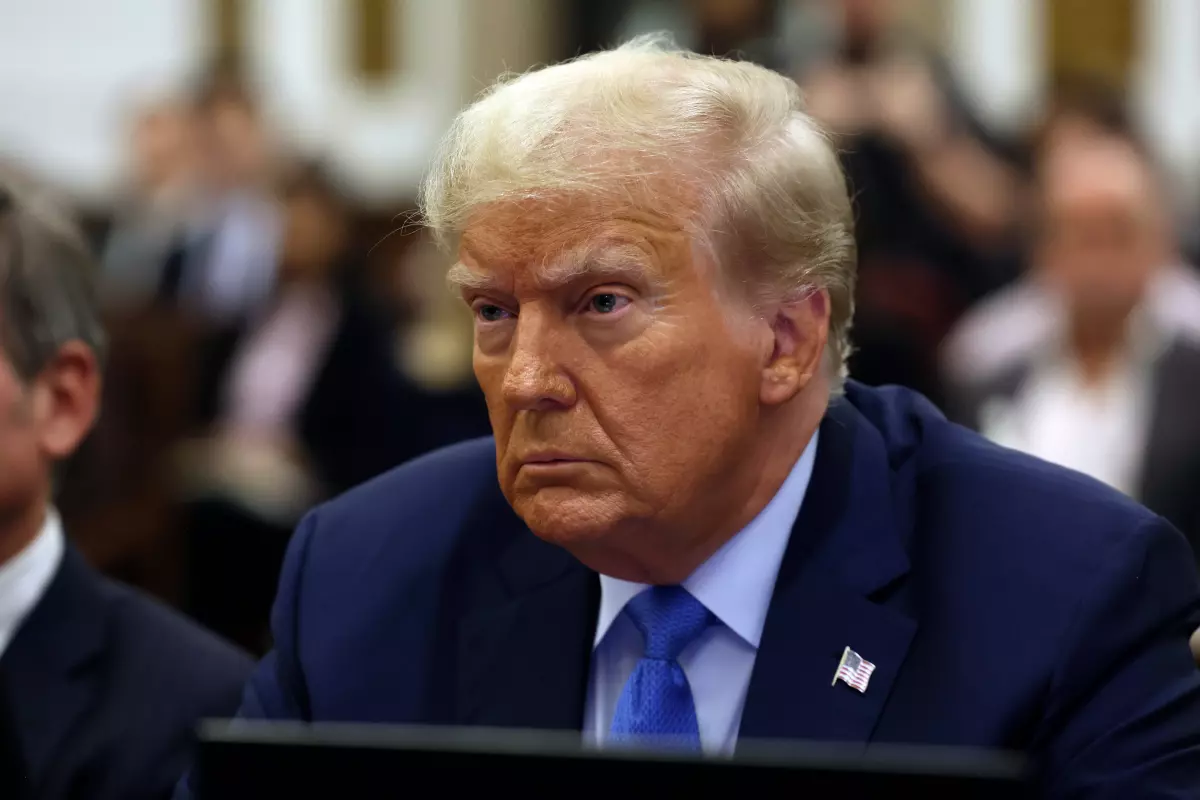The former president delivers a passionate closing argument, accusing the court of election interference.
The closing arguments in Donald Trump's high-stakes real estate fraud trial in New York culminated in a signature Trumpian fashion - with a dramatic and unscheduled rant about being a victim. Facing a $370 million penalty and the possibility of being banned from operating his business in New York, Trump made his grievances known to Justice Arthur Engoron. Referring to New York Attorney General Letitia James, who spearheaded the case against his business, the Trump Organization, he accused her of election interference.
The courtroom was already buzzing with tension as the day began with a bomb scare, prompting heightened security measures. Attorney General James is seeking to hold Trump responsible for nearly the entire proposed $370 million penalty, potentially resulting in a lifetime ban on his involvement in New York's real estate industry. This trial has far-reaching implications for Trump and his family.
 Former President Donald Trump testifying during his civil fraud trial at New York Supreme Court
Former President Donald Trump testifying during his civil fraud trial at New York Supreme Court
The trial has centered around whether Trump and his co-defendants engaged in fraudulent acts beyond what was covered in Engoron's previous ruling. The allegations include insurance fraud and the extent of the damages they should be held responsible for. Trump's adult children, Don Jr., Eric, and Ivanka, all testified under state subpoenas, while Trump's former lawyer and now adversary, Michael Cohen, took the stand as well.
After the lunch break, the focus shifted to the New York Attorney General's Office, with Kevin Wallace, the attorney general's senior enforcement counsel, presenting the most critical and undisputed facts in the case. He highlighted instances where Trump's financial statements were proven false, demonstrating deliberate fraud by Trump and his co-defendants.
But the most memorable moment came when Trump, initially denied the opportunity to address the court, was eventually allowed to speak during the defense's closing arguments. He expressed his frustration with the case, claiming that it was politically motivated. He criticized Attorney General James and accused her of having her own agenda. Trump also targeted Justice Engoron, suggesting that he too had ulterior motives.
Engoron intervened, advising Trump's lawyer to control his client. However, Trump continued to voice his dissatisfaction, prompting Engoron to question whether Trump had ever faced legal trouble in the past, to which Trump responded by questioning the judge's judgment.
Trump's legal team also had their chance to make their case. They argued that New York Attorney General James was seeking excessive fines that would violate the U.S. Constitution. They claimed that there was no real-world impact from the alleged conduct and characterized the lawsuit as an attempt to turn a standard business transaction into fraud.
Ultimately, the fate of Trump's business empire and the substantial penalty he faces now rests in the hands of Justice Engoron. The judge has already ruled that Trump fraudulently inflated his financial statements, leading to the loss of his New York business certificates. However, an appeals court has temporarily suspended this decision.
As this high-profile trial draws to a close, the anticipation mounts for the judge's ruling. Engoron has indicated that he expects to make a decision on the remaining allegations by the end of January. Until then, Trump's future in New York's real estate industry hangs in the balance.
Bart Jansen and Aysha Bagchi contributed to this report.













